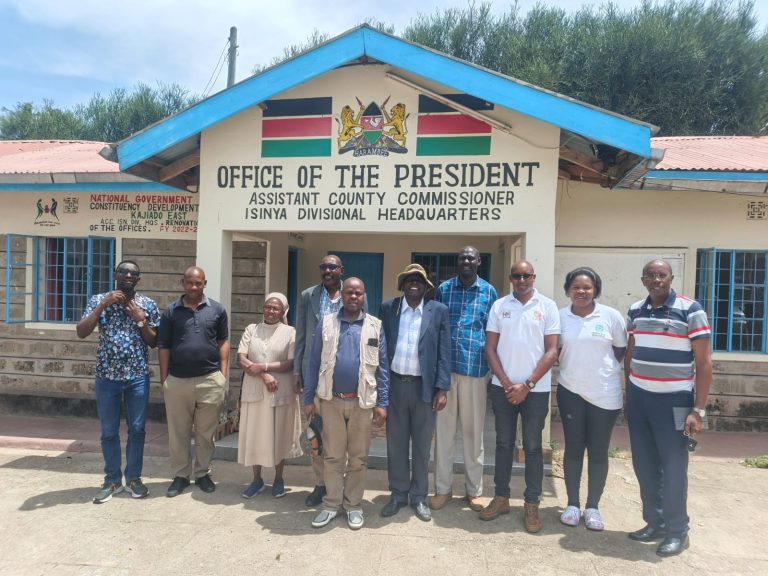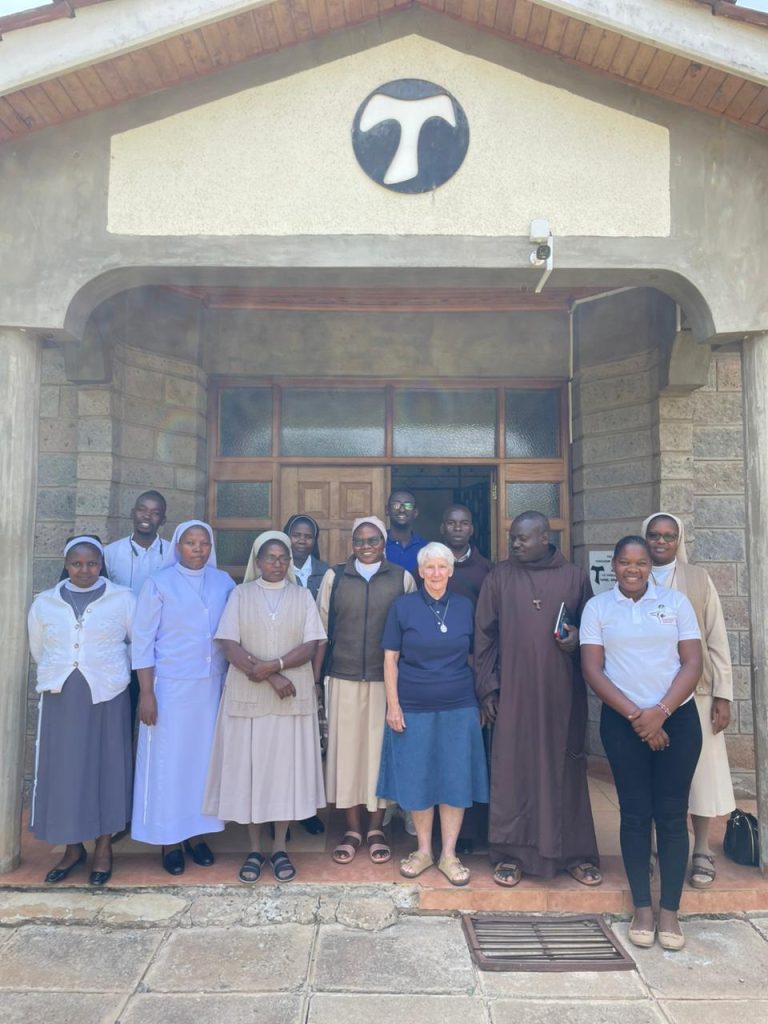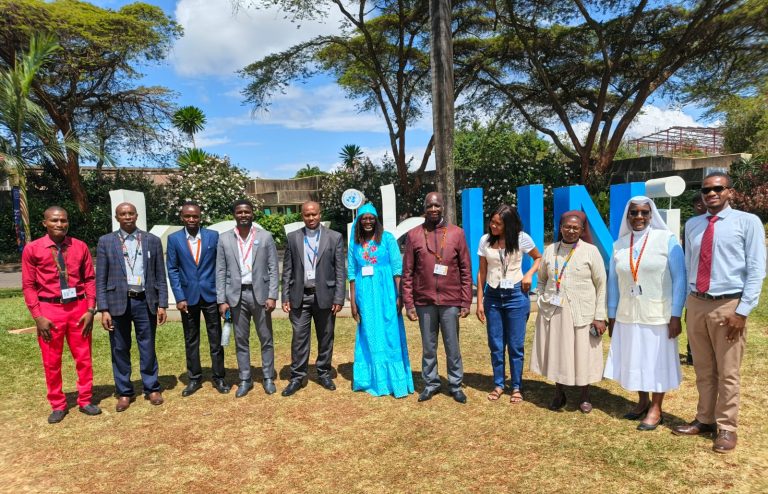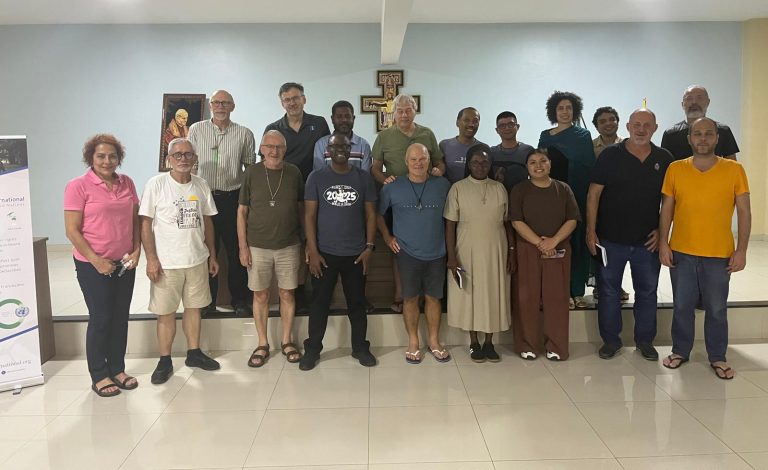
( Religious Leaders Who Stood for Justice)
Across Kenya’s history, faith has often been more than a matter of worship — it has been a driving force for justice, human dignity, and care for creation. The country’s most courageous faith leaders have not only preached the Gospel but lived it — standing shoulder to shoulder with the poor, the displaced, and the oppressed.
At JPIC Franciscans Africa, through our programs , we believe that the pursuit of justice for people and the planet is sacred work. The roots of this mission stretch deep into Kenya’s past, where prophetic figures dared to speak truth to power and to defend both human life and the environment.
Here, we honour three of those heroes of faith (Fr. John Anthony Kaiser, Archbishop Raphael Simon Ndingi Mwana a’Nzeki, and Rev. Dr Timothy Njoya ) whose legacies remind us that faith, when lived courageously, transforms societies.
1. Fr. John Anthony Kaiser (1932–2000)
Father Kaiser was an American-born priest of the Mill Hill Missionaries who arrived in Kenya in 1964 and spent decades working with communities in Kisii, Nakuru and Ngong
When Fr. John Kaiser arrived in Kenya in 1964 as a Mill Hill Missionary, he quickly became more than a pastor — he became a voice of conscience for the nation. He walked with the poor and displaced through some of Kenya’s darkest political moments.
-
- In the 1990s, as ethnic violence displaced thousands, Fr. Kaiser chose to live with the victims at Maela Camp in Nakuru County. He confronted powerful land grabbers and government officials who evicted people from their homes. His courage led him to testify before the Akiwumi Commission, fearlessly naming those responsible for ethnic clashes and land injustices.
-
- In 1999, he received the Law Society of Kenya’s Human Rights Award for his unwavering stand. But his truth-telling came at a cost. On August 24, 2000, Fr. Kaiser was found dead on the Nakuru Nairobi highway a tragedy later ruled as murder. His death shocked the nation, but his courage lit a torch that continues to burn in Kenya’s struggle for justice.
-
- Today, his name lives on through annual memorials, the Fr. Kaiser Human Rights Award, and the reissue of his prophetic book If I Die.
-
- Why he matters:
Fr. Kaiser’s life reminds us that the Gospel calls us to defend the voiceless, protect the land, and confront injustice even when it costs everything.
- Why he matters:
2. Archbishop Raphael Simon Ndingi Mwana a’Nzeki (1931–2020): The Voice of the Voiceless
Archbishop Ndingi was a pillar in Kenya’s Catholic Church who served in Machakos, Nakuru and later as Archbishop of Nairobi. His tenure coincided with some of Kenya’s most turbulent moments (single-party rule, ethnic clashes, land injustices).
-
- In the late 1980s, Ndingi bravely condemned the government’s mlolongo (queue-voting) system a symbol of dictatorship and electoral manipulation. During the 1992 ethnic clashes, he organized Church responses to shelter displaced families, speak out for peace, and demand accountability.
-
- Beyond politics, Ndingi championed education and community development, building schools, health centers, and water projects that uplifted entire communities.
-
- To many Kenyans, he was a “truth soldier” — firm yet compassionate, fearless yet deeply pastoral. His courage helped lay the moral foundations for Kenya’s journey toward democracy.
Why he matters:
Ndingi showed that spiritual authority must be used to defend the poor, challenge corrupt power, and guide society toward justice and peace. His life was a lesson in servant leadership.
3. Rev. Dr Timothy Njoya (born 1941)
Rev. Njoya is a retired minister of the Presbyterian Church of East Africa (PCEA) who has been a strong voice for democracy, equality and human rights in Kenya.
Contributions & context
-
- In the 1980s and 1990s, he used his pulpit and activism to challenge autocratic rule, promote multiparty democracy and freedom of conscience.
-
- He actively supported women’s rights, including campaigning against female genital mutilation (FGM), publishing a book Selfhood; Divinity of the Clitoris in 2020 focused on women’s bodily autonomy. (Hivos)
-
- His activism brought personal cost — he was beaten by police, his home searched and he was subject to criticism for taking political stands.
Impact & legacy
Through his theological work, activism and writings, Njoya has influenced the intersection of faith, gender justice and human rights. He remains an example of how clergy can engage with issues of equality, not just between classes or tribes but across gender lines.
Why he matters for social justice/human rights
Because his focus expands the frame: not only on land, ethnicity or power, but also on gender, bodily integrity and democratic culture. He shows how faith leadership can address both structural injustice (political, social) and cultural practices (FGM, patriarchy).
Reflections: Seeds of Faith and Justice
-
- From Kaiser’s fearless defense of the landless, to Ndingi’s fight for democracy, to Njoya’s vision of gender equality — these leaders show us that faith and justice are inseparable.
-
- They risked their lives and reputations to defend truth, protect the vulnerable, and care for creation. Their struggles remind us that the call to justice is not only political — it is profoundly spiritual.
-
- At JPIC Franciscans Africa, we see their legacy reflected in the Empowering Women through Agroecology Project. Like them, we believe that defending human dignity also means protecting the earth that sustains it. By training women in sustainable farming, ecological awareness, and rights-based empowerment, we continue the mission these leaders embodied — a mission of justice, peace, and the integrity of creation.
-
- “The struggle for justice did not end with Fr. Kaiser. The lives of these brave men and women place before us a sacred duty—to continue the work they began.
A Call for Our Time
-
- Kenya still faces deep inequalities, from land conflicts to gender-based injustice and environmental degradation. But the example of these faith leaders reminds us that change begins when people of faith act with courage and compassion.
-
- Their lives are a call to all of us — faith leaders, women, youth, and communities — to be guardians of both people and planet.
-
- May their witness continue to inspire our work toward a just, sustainable, and compassionate world.



